Thanks to a $14.9 million grant from the National Oceanic & Atmospheric Administration and a $1 million state appropriation, the Federation is working to complete the Pamlico Sound Oyster Sanctuary and train the next generation of restoration professionals.
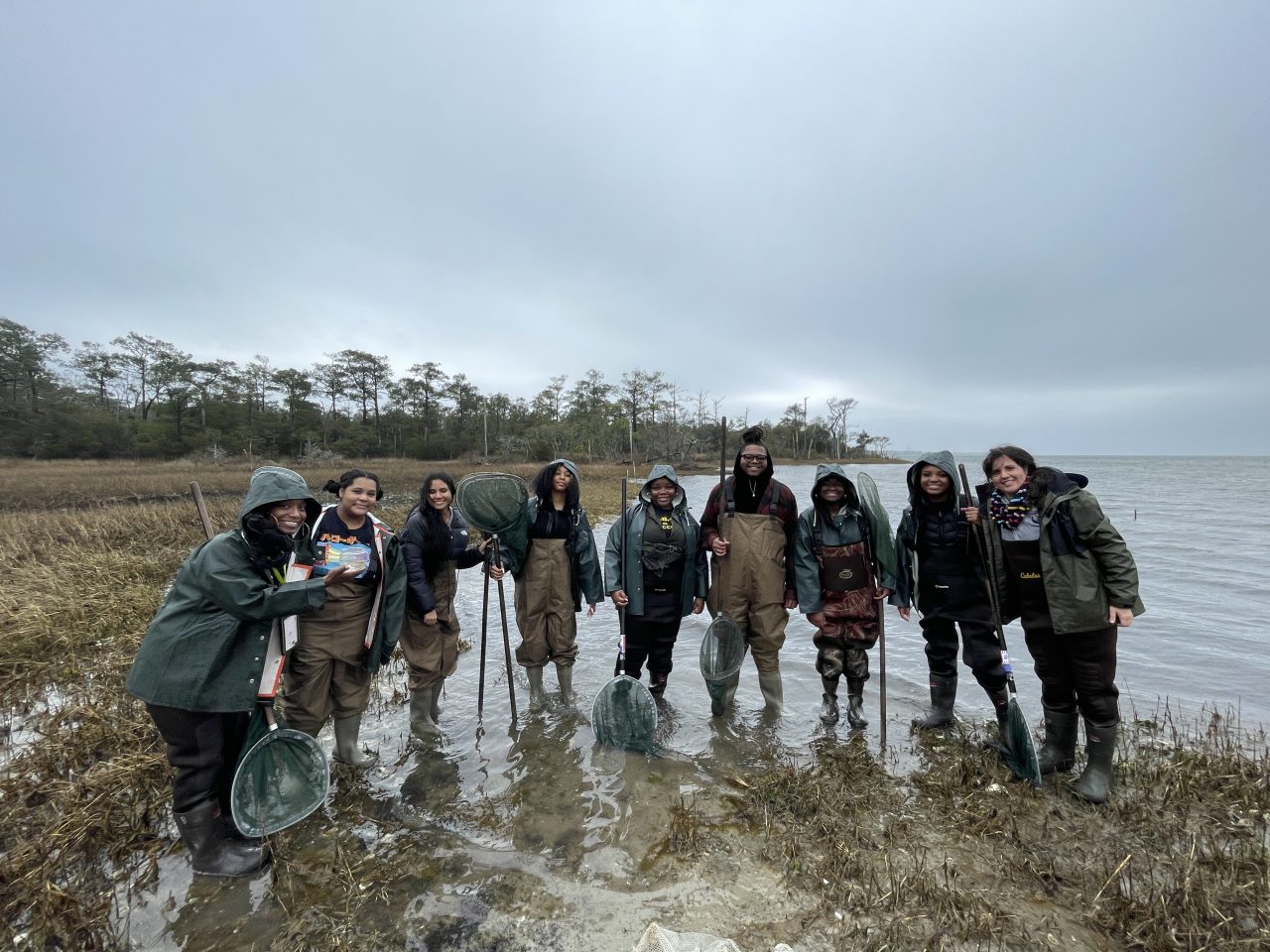
In an ongoing collaboration with North Carolina State University’s Center for Marine Sciences and Technology (CMAST) and North Carolina Central University (NCCU), the completion of the 500-acre oyster sanctuary will play a role in the training of the next generation of marine scientists and restoration professionals. Eight students will be sponsored thanks to this innovative partnership. Through their engagement with the oyster sanctuary project, students will receive graduate school tuition, room and board, stipends, and specialized training such as Open Water and Scientific Diving Certifications.
To create long-lasting impacts, the graduate students will engage with K through 12 public school students and college undergraduates, aiming to inspire them to follow in their successful footprints. This program will allow students to dedicate their time and talent to work promoting habitat restoration and coastal resilience.
During their time in this program, the students will participate in research on the fish use of oyster sanctuaries, habitat suitability models that are used to predict where oyster sanctuaries would be best suited in Pamlico Sound, and the concentration of heavy metals and PFAS in restored oyster reefs, among other important research topics.
This project has forged an innovative new partnership with two local universities to sponsor eight future marine scientists and restoration professionals. They will leave their programs ready for hands-on restoration projects and relevant research. This partnership, a first in the nation, includes the Federation, a land grant university’s marine laboratory, and a Historically Black College and University (HBCU). It will serve as a model for coastal states throughout the US.
If you’re interested in pursuing this research opportunity, please send an email to oysters@nccoast.org for more information.
Meet the Students
Lauren Johnson is a recent 2024 graduate of North Carolina Central University. During her time at NCCU, she was involved in multiple organizations and committed to serving her community. Upholding NCCU’s motto of truth and service, Lauren Johnson has completed over 230 hours of service while attending.
Lauren Johnson was president of Climate Reality Campus Corps and Vice President of Honda Campus All-Star Challenge during her senior year of undergrad. She is also a Spring ’23 initiate of the Alpha Lambda chapter of Delta Sigma Theta Sorority Inc. Lauren graduated Magna Cum Laude and is pursuing a master’s degree in environmental science.
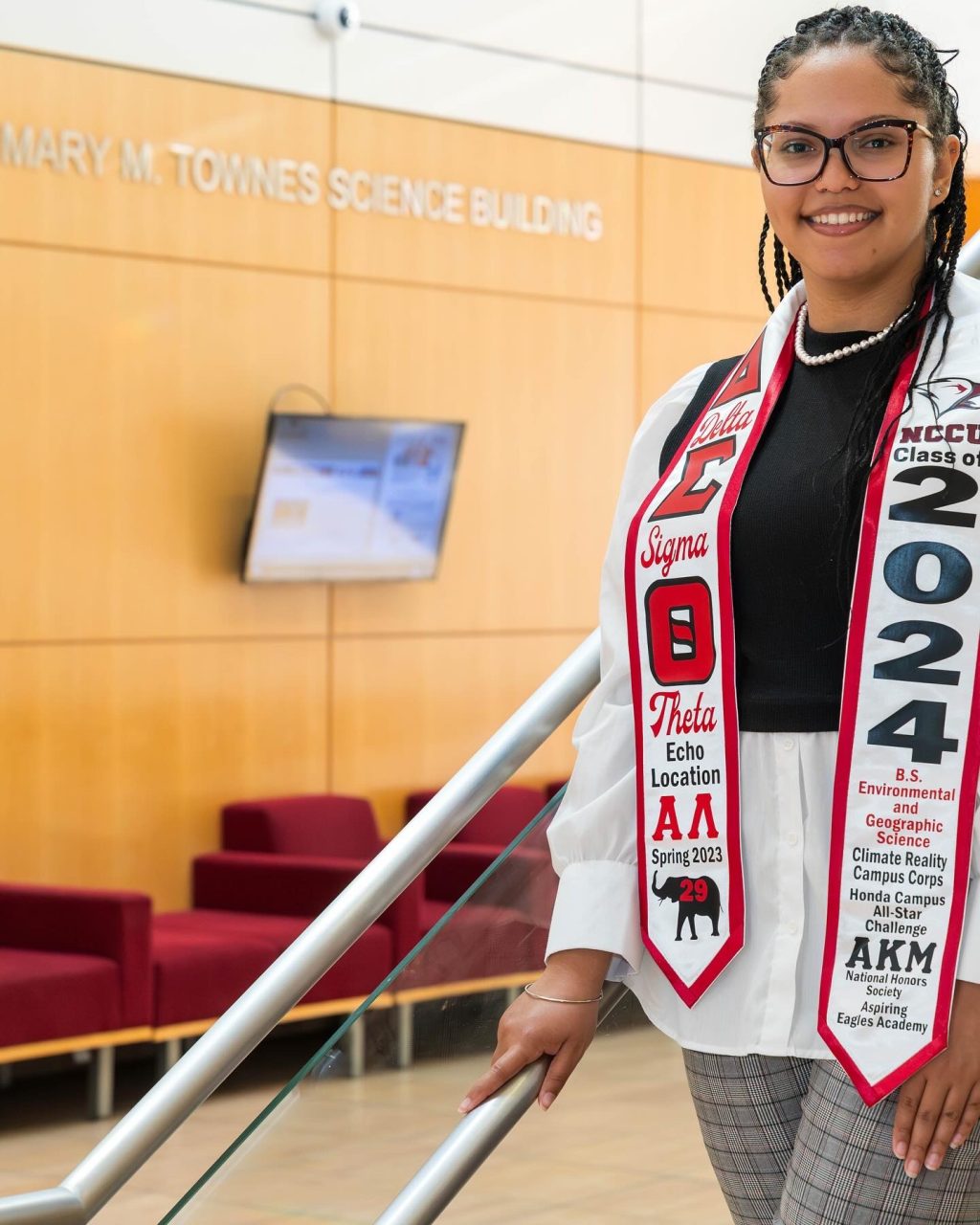
Rebecca Ruiz is a Master’s student at North Carolina State University studying oyster reef ecology in response to restoration efforts in Pamlico Sound, NC. Rebecca’s project is to investigate the ecological benefits of new and recently constructed reefs that are part of the North Carolina Oyster Sanctuary Program, with the use of both active and passive acoustic monitoring techniques. In characterizing the reef’s ecological health and developing a timescale for oyster reef development, this study will be used to inform the scientific community and other organizations for the improvement of our future conservation projects.
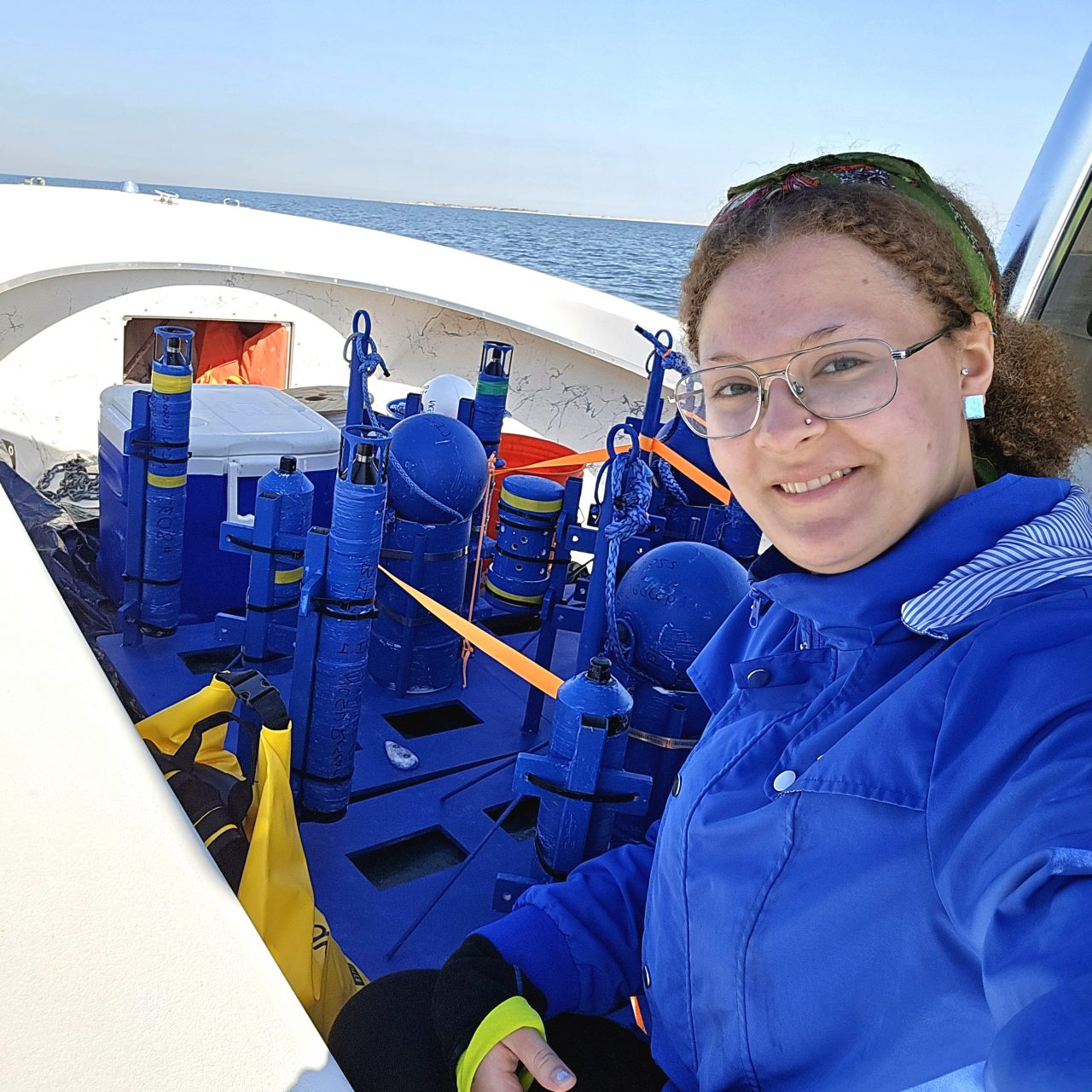
Tamarr Moore is a recent 2024 graduate of North Carolina Central University, where she majored in Environmental, Earth, and Geospatial Sciences. Tamarr graduated summa cum laude and maintained a position on the A Honor Roll Dean’s List throughout her time at NCCU. In April 2023, she was recognized for academic excellence by her department.
During her undergraduate years, Tamarr completed over 60 hours of community service and participated in three key internships: at Duke Superfund, Duke Lemur Center, and Piedmont Wildlife Center. These experiences fueled her passion for restoration, rehabilitation, and conservation work, and strengthened her belief in the importance of preserving the Earth.
Tamarr is currently pursuing a master’s degree in Environmental, Earth, and Geospatial Sciences at NCCU, with a strong focus on environmental protection and conservation strategies.
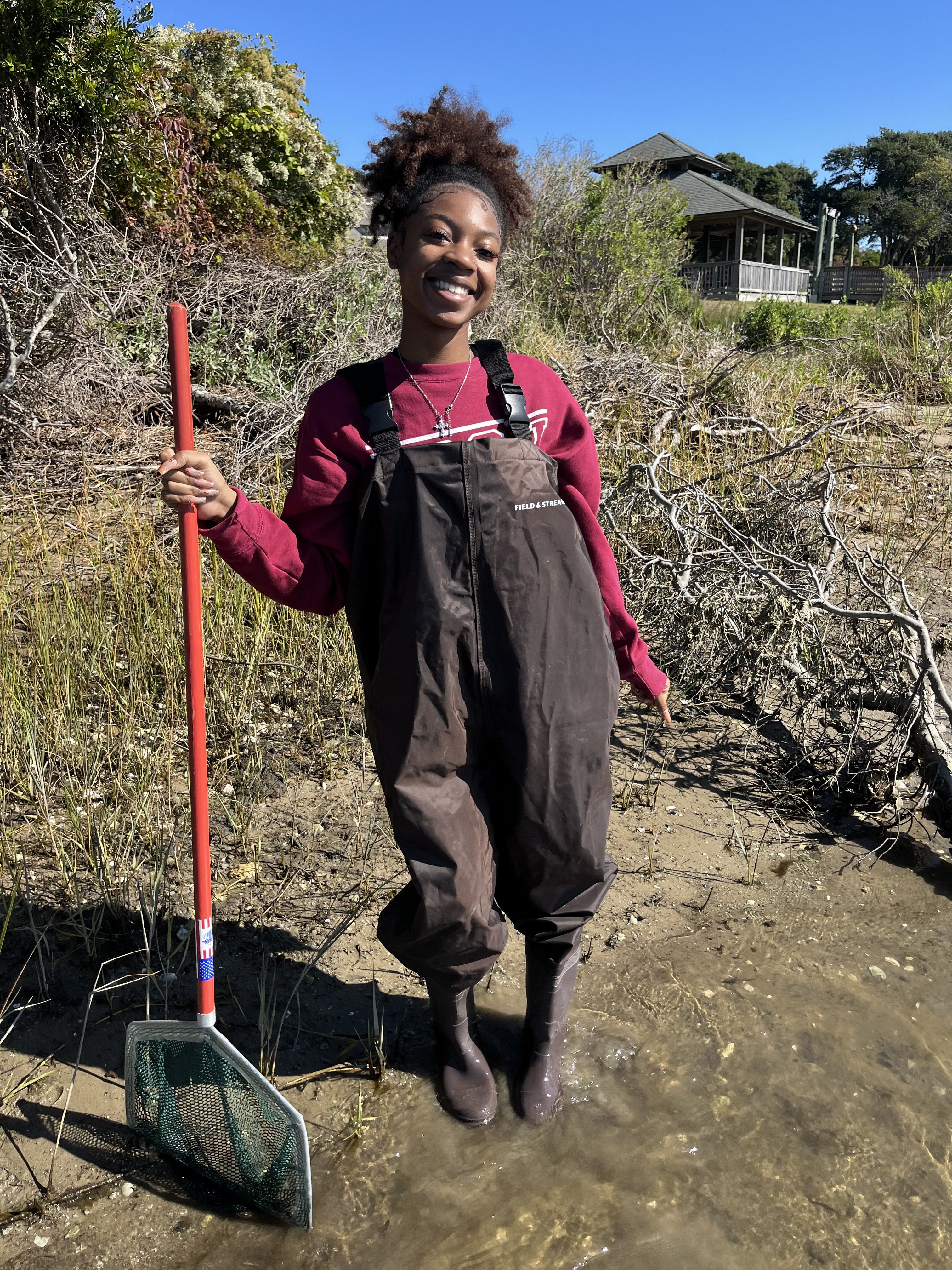
John Brooks is a current PhD student at North Carolina State University (NCSU) studying biological oceanography. His graduate projects focus on investigating how dredging impacts finfish and shellfish use of Beaufort Inlet, NC and characterizing the soundscape of fish near human-made oyster reefs in Pamlico Sound. His broad research interests include estuarine ecology, fisheries management, and the influence of human activities on coastal habitats. Given his commercial fishing heritage, John is passionate about connecting marine scientists and commercial fishermen – an often-underrepresented group in fisheries management, to further public knowledge involving fisheries science.
A native of Down East, NC, John grew up in a rural, commercial fishing family and spent his summers culling shrimp on the Della John- the shrimp trawler his family built- hauling mullet nets at Cape Lookout, and digging clams with his grandparents. These experiences shaped his interest in marine biology. In 2022, this inspiration and strong work ethic paid off when John became a first-generation college graduate, graduating from NCSU with B.S. degrees in environmental and biological sciences. His commitment to giving back to his greater community has led him to participate in service-based, STEM education programs within Trinidad and Tobago, Belize, and Puerto Rico – and more recently volunteering with local marine science camps as an educator.

TaBonya “Bonnie” Craig is an environmental scientist and U.S. Army veteran committed to protecting and restoring North Carolina’s coastal ecosystems. She holds multiple undergraduate degrees, including a Bachelor of Science in Environmental, Earth, and Geospatial Sciences from North Carolina Central University, along with five additional undergraduate degrees in related scientific and technical disciplines. She also earned a Master of Science in Environmental Health from East Carolina University and is currently pursuing a second master’s degree in Environmental, Earth, and Geospatial Sciences at NCCU.
Her current research focuses on the effects of the 2025 Atlantic hurricane season on heavy metal accumulation in oysters from Bogue Sound, North Carolina. Bonnie integrates her extensive academic background, leadership experience, and passion for environmental stewardship to advance coastal resilience, water quality, and sustainable resource management. She plans to continue her academic journey by pursuing a Ph.D. in Toxicology, with the goal of furthering research on environmental contaminants and their impacts on human and ecological health.

Sabine Felix, a recent UNCW graduate with a Bachelor’s degree in public health. She is working on getting her Master’s degree at NC Central University in environmental science, where she’s hoping to utilize both degrees and find a career that focuses on combining environmental research with public health awareness.

Brittany Stanley is a dedicated scientist from Smithfield, North Carolina. She earned her Bachelor of Science in Biology from Campbell University in 2023 and went on to complete a second degree in Chemistry at North Carolina Central University (NCCU), graduating in 2025 with B Honor Roll distinction.
During her time at NCCU, Brittany conducted research on the Isolation and Characterization of Xanthones in Garcinia mangostana. She presented her findings at the NCCU Graduate Undergraduate Research Symposium (GURS), where she was awarded second place for her oral presentation. She was also inducted into the National Society of Leadership and Success chapter at NCCU in recognition of her academic achievement and leadership potential.
Beyond her academic pursuits, Brittany has demonstrated a strong commitment to community service. She has volunteered extensively at the Boys and Girls Club, served as a Parks and Recreation cheer coach—building meaningful relationships with the young athletes she mentored—and supported patients and families at her local hospice center. She was also accepted into a UNC Shadowing Program, where she gained valuable experience observing physicians in internal medicine.
Currently, Brittany is pursuing her Master of Science in Chemistry and Biochemistry at NCCU. Her passion for research, dedication to service, and drive to explore the intersection of biology and chemistry continue to shape her journey as a scientist and community leader.
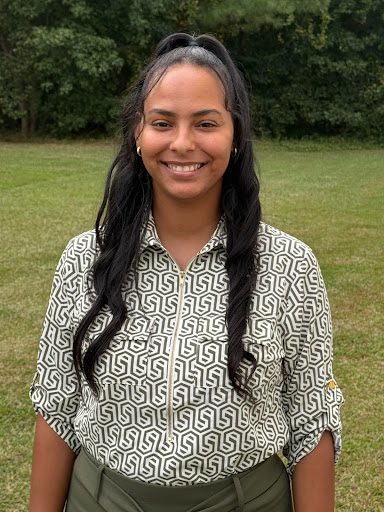
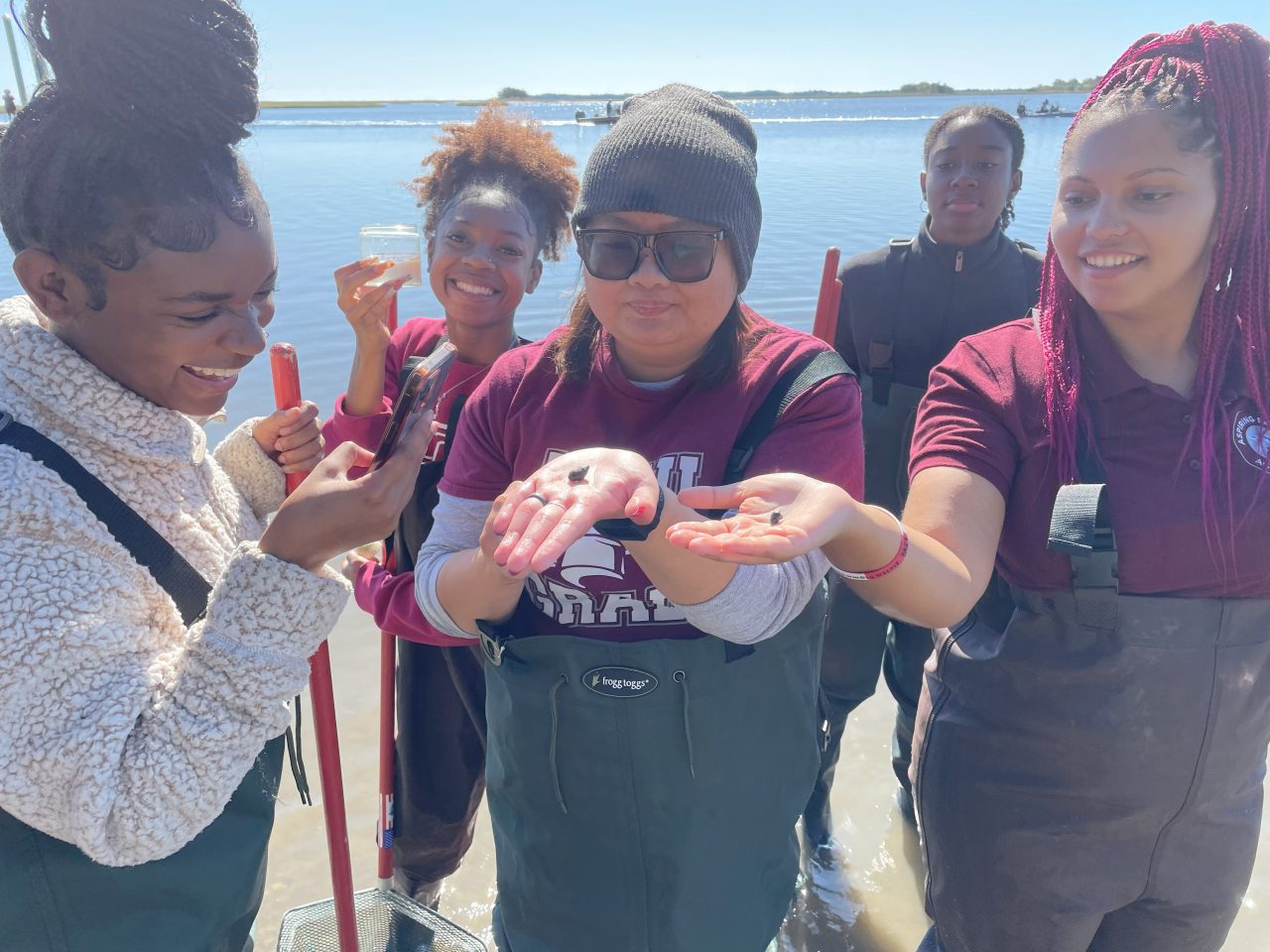
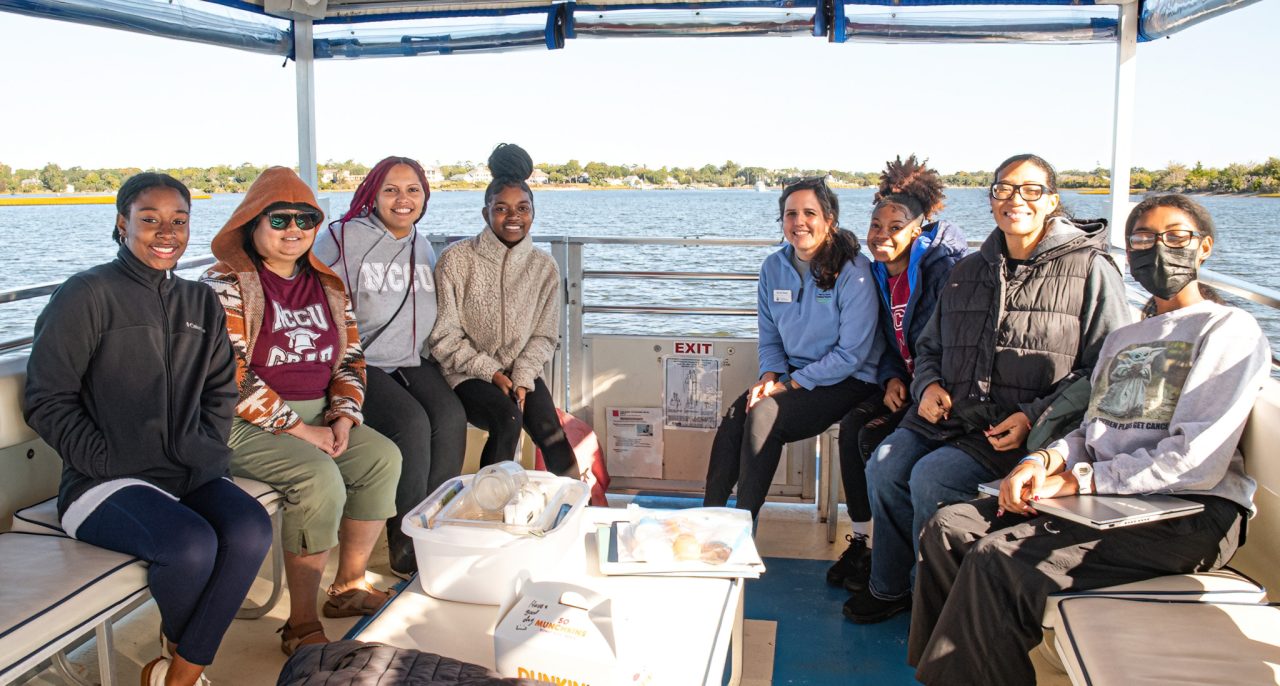
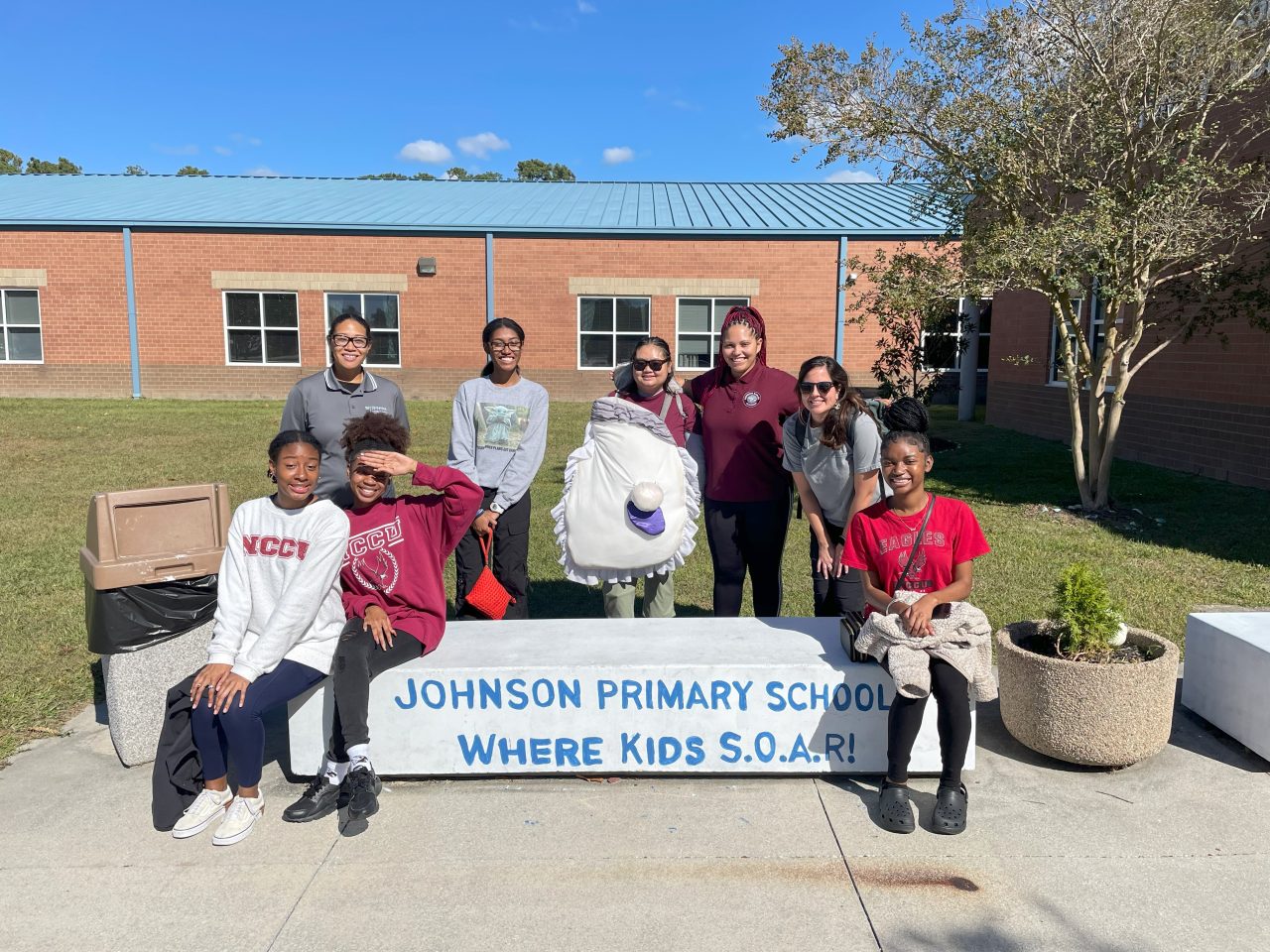
Partners: North Carolina Division of Marine Fisheries, North Carolina Central University, North Carolina State University’s Center for Marine Sciences and Technology, North Carolina Aquarium on Roanoke Island, NOAA Federal, Research Triangle Institute.
Funding Source: National Oceanic & Atmospheric Administration and State Appropriations.
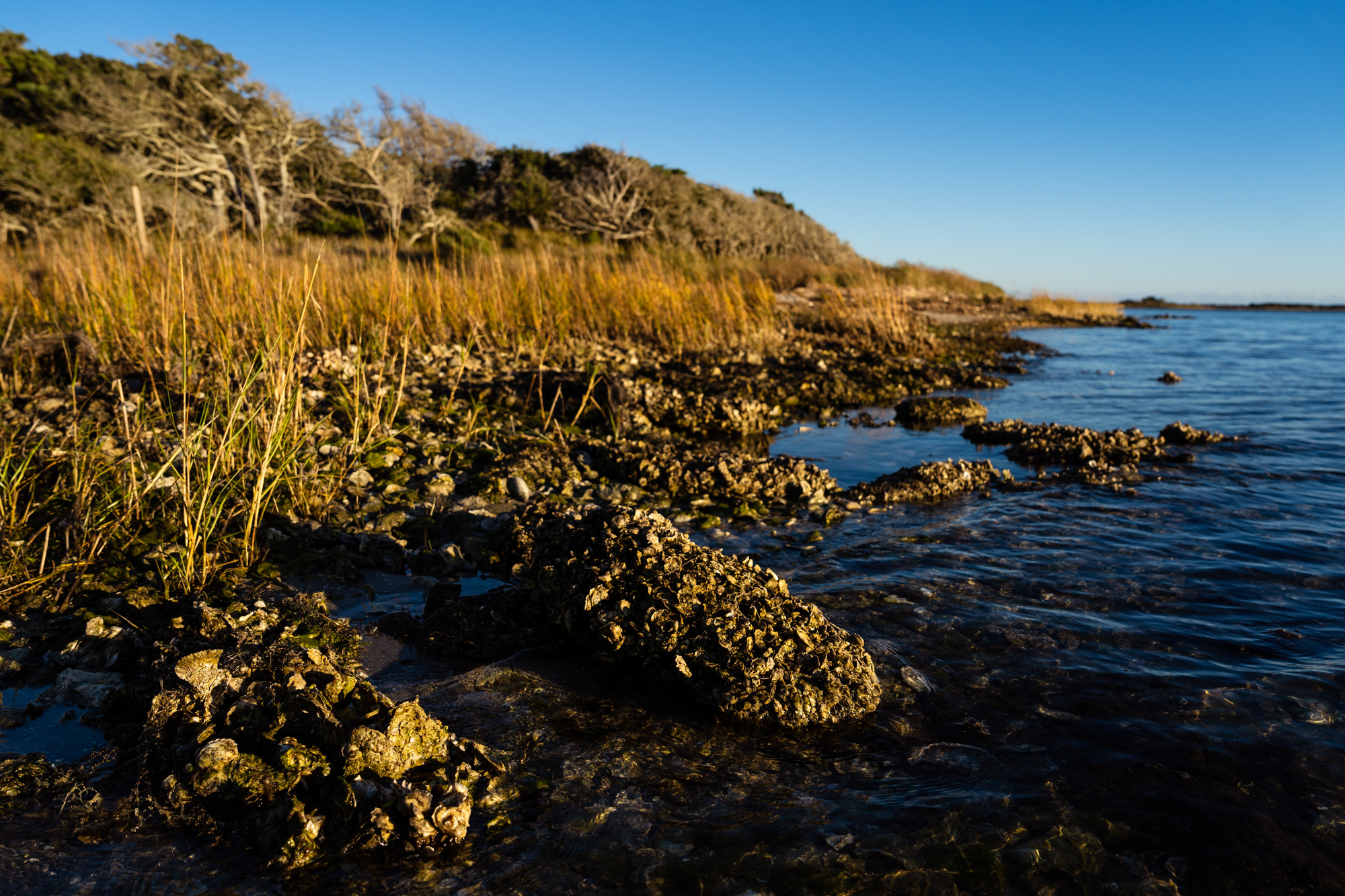
The Restoration Continues
You can support even more oyster restoration by Adopting an Oyster.
